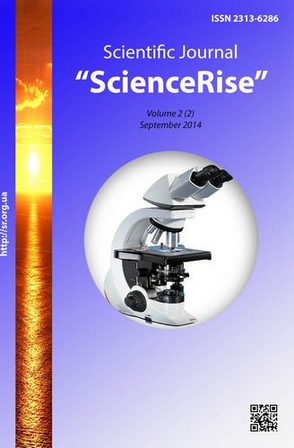Recursive models of psychodynamics for prognosis of active control systems with memory
DOI:
https://doi.org/10.15587/2313-8416.2014.27251Keywords:
maximum subjective entropy principle, recursive memory model of individual preferences, functionalAbstract
Abstracts of the articles are devoted to the scientific explanation of the phenomenon of managerial decision-making in the so-called active systems. Proposed functionals allow to model dynamic processes with "memory". This approach is applicable to a quasi-closed by information systems that are able to reduce its own entropy, being closed by the energy and substance. We construct the corresponding diagrams.
References
Kasianov, V. (2013). Subjective entropy of preferences. Subjective analysis: monograph. Warsaw, Poland: Institute of Aviation, 644.
Kasianov, V. (2007). Subjective analysis: monograph. Kyiv, Ukraine: National Aviation University, 512.
Kasianov, V. (2003). Elements of subjective analysis: monograph. Kyiv, Ukraine: National Aviation University, 224.
Kasianov, V., Goncharenko, A. (2013). Light and shadow. Proportions of shadow economy. Entropy approach: monograph. Kyiv, Ukraine: Kafedra, 86.
Goncharenko, A. (2014). Some identities of subjective analysis derived on the basis of the subjective entropy extremization principle by Professor V.A. Kasianov. Automatic Control and Information Sciences, 2 (1), 20–25.
Jaynes, E. T. (1957). Information theory and statistical mechanics. Physical review. – U.S.A., 106 (4), 620–630.
Jaynes, E. T. (1957). Information theory and statistical mechanics. II. Physical review. – U.S.A., 108 (2), 171–190.
Stratonovich, R. (1985). Non-linear non-equilibrium
thermodynamics. Moscow, Russia: Nauka, 478.
Stratonovich, R. (1975). Information theory. Moscow, Russia: Sov. Radio, 424.
Kasianov, V., Goncharenko, A. (2014). Light and shadow economy proportions and entropy approach to principal laws of psychodynamics. Intellectual Systems for Decision Making and Problems of Computational Intelligence: International Conference. Kherson: KNTU, 9–11.
Downloads
Published
Issue
Section
License
Copyright (c) 2014 Володимир Олександрович Касьянов, Андрей Викторович Гончаренко

This work is licensed under a Creative Commons Attribution 4.0 International License.
Our journal abides by the Creative Commons CC BY copyright rights and permissions for open access journals.
Authors, who are published in this journal, agree to the following conditions:
1. The authors reserve the right to authorship of the work and pass the first publication right of this work to the journal under the terms of a Creative Commons CC BY, which allows others to freely distribute the published research with the obligatory reference to the authors of the original work and the first publication of the work in this journal.
2. The authors have the right to conclude separate supplement agreements that relate to non-exclusive work distribution in the form in which it has been published by the journal (for example, to upload the work to the online storage of the journal or publish it as part of a monograph), provided that the reference to the first publication of the work in this journal is included.

